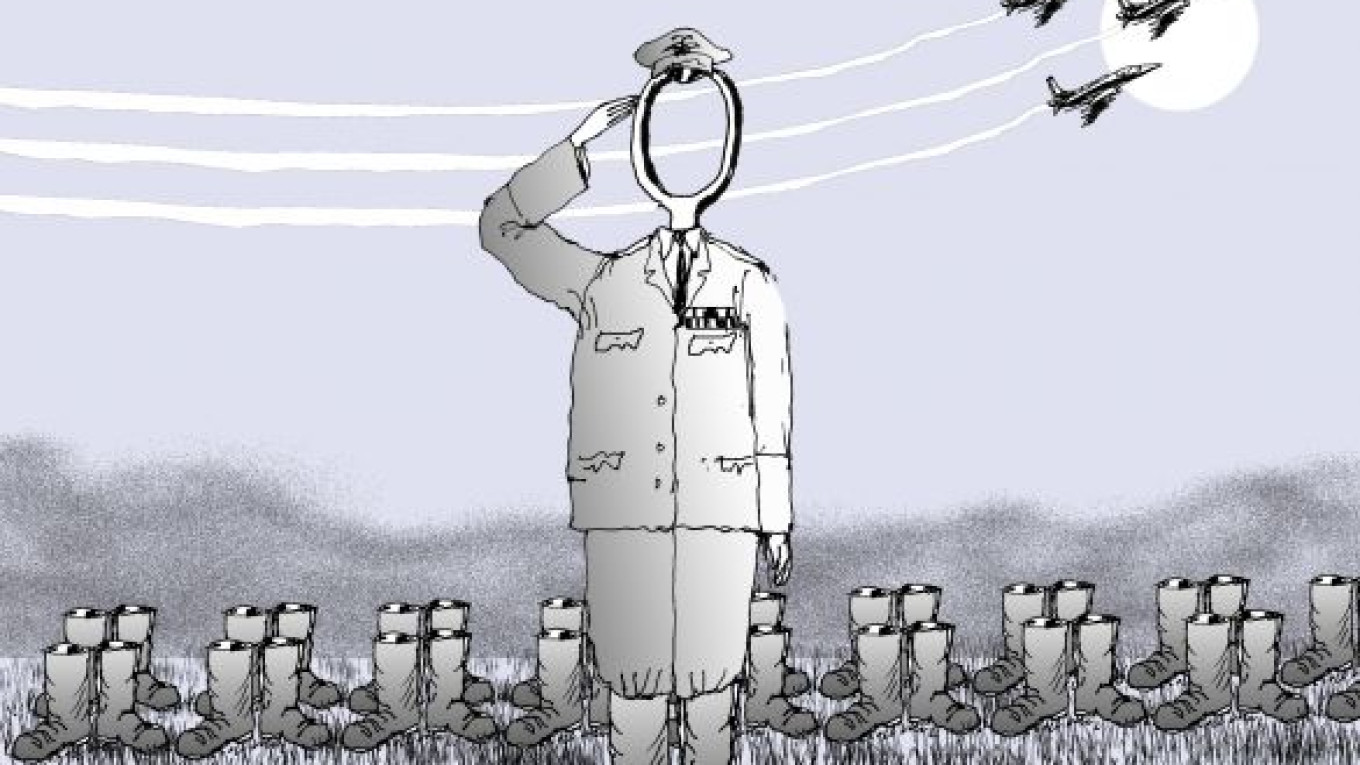Military maneuvers of any type are a rehearsal for actual combat. That is their purpose — to test troop readiness and their level of training. Military exercises also provide a way to test new concepts for conducting a war that are being introduced into the armed forces. But military maneuvers differ from actual war in one fundamental way: The “good guys” always win. How could it be otherwise when the military’s top brass is watching the exercises the whole time?
But it sometimes happens that maneuvers are based on a flawed concept, and the whole enterprise ends in confusion as a result. This happened in December 1940 when Soviet Marshal Georgy Zhukov, leading the blue team representing the Germans, routed the Soviet red team in military maneuvers.
The largest Russian army maneuvers of the year will be Vostok 2010, scheduled for mid-June. But it is already clear that the exercises will be a failure. This reflects the larger failure and incompetence of the military at large and its fundamental inability to fight a war.
The generals in charge of Vostok 2010 are panicking because President Dmitry Medvedev plans to observe the maneuvers. They realize that they don’t have enough soldiers to conduct the exercises and are forcing conscripts to remain on duty even though their 12 months of mandatory service has been completed.
The inability to round up enough soldiers to even conduct military exercises underscores the basic problems of trying to maintain a conscript army — particularly when the conscripts serve only one year. Those who had hoped that Russia’s military reforms would include a transformation into a professional army can give up their hopes. Does anyone remember General Staff Nikolai Makarov’s statement in April that Russia won’t ever switch from a conscript army to a professional one?
Makarov and other military leaders never tire of assuring us that no more than one hour of preparation is needed for a unit to carry out a military order. At the same time, nobody can explain how this is possible when every six months fully one-half of all personnel in each unit is discharged and replaced with untrained recruits. In reality, this means that at any given moment, one-half of all soldiers in the army are unprepared to do anything at all.
Of course, combat readiness is one thing, but actual fighting capability is another matter entirely. In fact, the whole idea of “permanent readiness” simply means that battle units are fully staffed. Nobody worries about what those units would be capable of doing during a war. The main concern is quantity, not quality. But preparations for the Vostok 2010 maneuvers have forced a moment of truth. It turns out that units that discharge conscripts whose terms have been fulfilled are unable to participate fully in the maneuvers.
What is most disturbing, however, is that these exercises are a direct reflection of the army’s poor preparation to fight a war. In fact, the real preparedness of the army is even worse because the location and even the scenario by which training exercises will be conducted are all known beforehand. The same cannot be said of a real military conflict. This means that during a war, the units that are unprepared for training exercises would not be able to carry out orders from their commanders in even one day, much less in one hour.
For the past 15 years, we have heard that most military conflicts in the 21st century will arise suddenly and end quickly. The five-day Russia-Georgia war in 2008 is a good example. An important fact to remember in this conflict is that only about 30 percent of the Russian units were composed of conscripts. The remaining 70 percent were made up of professional personnel. The fact that the largest contingent was made up of professional soldiers is the only explanation of why the army was able to deploy its forces so quickly. But with Russia’s decision to bury the idea of forming a professional army, military commanders will be faced with an extremely difficult dilemma if an unexpected conflict suddenly arises. Should they use precious hours and even days to reorganize their units to avoid sending fresh recruits into battle or react quickly and use them as cannon fodder? The Vostok 2010 maneuvers suggest that the cannon-fodder model remains Russia’s preferred method of fighting wars.
Soviet army commanders were unable to learn the proper lessons from their failed military maneuvers in 1940, and it appears that Russia’s current commanders haven’t learned a single lesson in 70 years.
Alexander Golts is deputy editor of the online newspaper Yezhednevny Zhurnal.
A Message from The Moscow Times:
Dear readers,
We are facing unprecedented challenges. Russia's Prosecutor General's Office has designated The Moscow Times as an "undesirable" organization, criminalizing our work and putting our staff at risk of prosecution. This follows our earlier unjust labeling as a "foreign agent."
These actions are direct attempts to silence independent journalism in Russia. The authorities claim our work "discredits the decisions of the Russian leadership." We see things differently: we strive to provide accurate, unbiased reporting on Russia.
We, the journalists of The Moscow Times, refuse to be silenced. But to continue our work, we need your help.
Your support, no matter how small, makes a world of difference. If you can, please support us monthly starting from just $2. It's quick to set up, and every contribution makes a significant impact.
By supporting The Moscow Times, you're defending open, independent journalism in the face of repression. Thank you for standing with us.
Remind me later.


